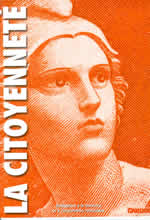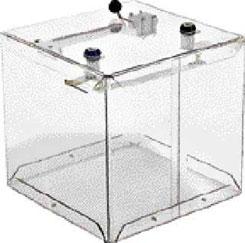Drift or eclecticism of the French political world?

For every presidential election, the law requires presidential hopefuls to be endorsed by 500 elected officials of the nation. Without these endorsements, a candidacy is not legitimate. This procedure, introduced in 1962, prevents frivolous candidates. However, in 2002, with 16 contenders, the record number of candidates for the first round of a presidential election was broken.
What is the purpose of political sponsorship? Theoretically, it ensures that candidates are the most representative of the people. A sectarian candidate would struggle to find 500 signatures. But the reality is quite different. In France, there are 36,700 municipalities. Therefore, 36,700 mayors are potentially able to sponsor a candidate, plus all the other elected officials: municipal, departmental, and regional councilors… This represents no less than 800,000 elected officials (slightly fewer with dual mandates) across French territory and, hence, as many possible endorsements. Observing the 2002 endorsement lists, one realizes that a minority of officials are willing to give their voice to a candidate. Not even a dozen in Alpes-Maritimes. This suggests that most of them often identify with the same presidential hopefuls: predominantly UMP and PS.
Why not offer more endorsements so that a politician can run in the presidential elections? Or simply eliminate political sponsorship altogether.

The number 500 might seem absurd. But it is proof that our presidential system is fundamentally sound: it gives the right to non-media individuals to run, even though they need to build a fairly extensive network of political figures for that: Daniel Gluckstein in 2002 and Jacques Cheminade in 1995.
Imagine needing more than 1,000 signatures to run for president. A disaster for our democracy. Political diversity obliterated. Only two or three parties would remain and be able to present candidates, and thus all the graduates of elite schools or career politicians: UMP, PS, PC, and UDF… In a way, it would insulate the political debate. Two or three parties would reign, while others currently serving as counterpower would be relegated to the oblivion of political history: FN, LCR, Workers’ Struggle… Speculative fiction certainly, but it allows us to understand the balance in the political spectrum that these 500 signatures enable.
Isn’t it better to allow extreme parties to express themselves rather than let them become even more radicalized? Dialogue is a key element of our democracy. It is for its own good. It is up to each of us to ponder this question.
Sponsors of the 2002 presidential elections in Alpes-Maritimes:
For Lionel Jospin: Edouard David – Mayor of Saint-Léger
For Noël Mamère: André Aschieri – Deputy of the 9th constituency
Bertrand Le Flon - Mayor of St Martin-d'entraunes
For Jean-Marie Le Pen: Jean Claude Frappa – Regional Councillor
Sylvain Buttelli - Mayor of Valderoure
For Olivier Besancenot: Francis Gallano – Mayor of Escragnolles


